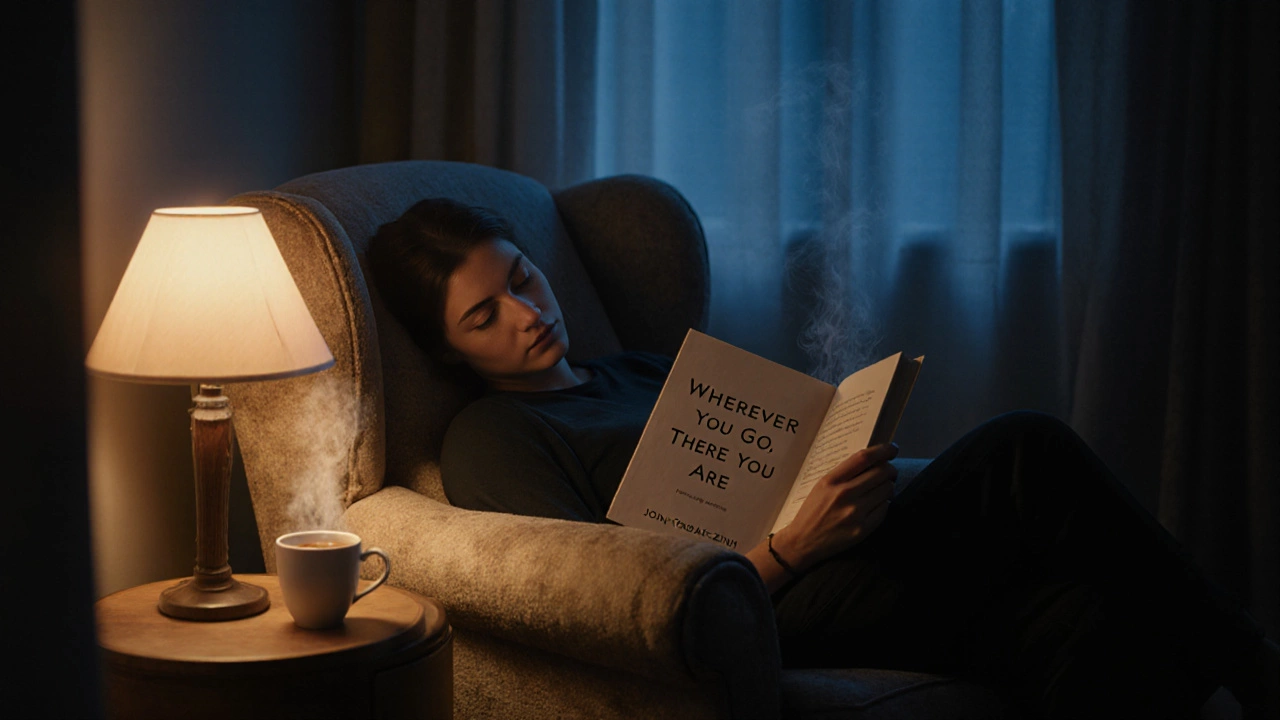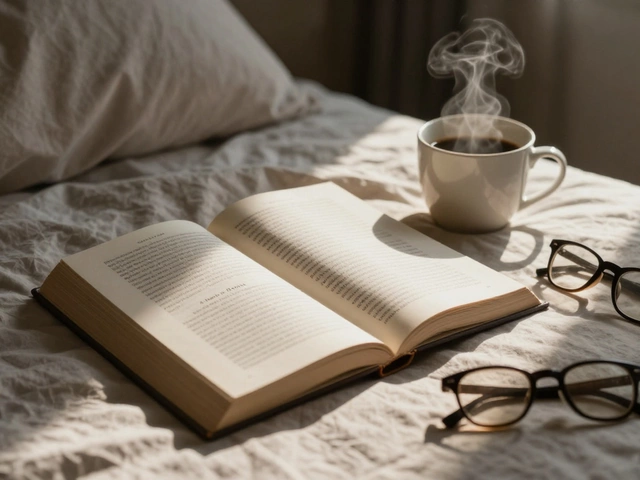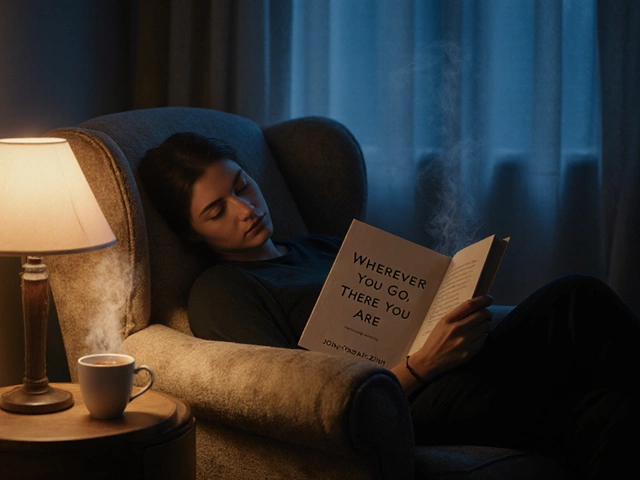Many people reach for a self-help book before turning off the lights. They think it’s a smart way to end the day-learning something useful while winding down. But is it actually helping them sleep, or is it making their minds more active when they should be calming down?
Why People Read Self-Help Books at Night
It makes sense on paper. You’ve had a long day. Your phone is off. You’re not scrolling. You’re holding a book that promises growth, clarity, or peace. Books like Atomic Habits by James Clear, The Power of Now by Eckhart Tolle, or How to Stop Worrying and Start Living by Dale Carnegie feel like gentle mentors. Reading them feels productive, even peaceful.
But here’s the catch: not all self-help books are created equal when it comes to bedtime. Some calm your nervous system. Others fire it up.
The Science of Reading Before Sleep
Research from the University of Sussex found that reading for just six minutes can reduce stress levels by 68%-more than listening to music or drinking tea. That’s because reading shifts your focus away from daily worries and into a different mental space.
But reading fiction and reading self-help aren’t the same. Fiction pulls you into someone else’s world. Your brain relaxes because there’s no pressure to change anything. Self-help books, on the other hand, often ask you to reflect, evaluate, and plan. They say things like, “What’s one habit you need to change?” or “How will you apply this tomorrow?”
That’s not winding down. That’s preparing for tomorrow.
When Self-Help Books Help You Sleep
Some self-help books work beautifully before bed-if they’re written to soothe, not to spur action.
Books like The Art of Stillness by Pico Iyer or Wherever You Go, There You Are by Jon Kabat-Zinn focus on presence, acceptance, and quieting the mind. These don’t push you to fix yourself. They invite you to rest as you are.
People who read these types of books at night often report falling asleep faster and waking up feeling more centered. Why? Because the content doesn’t trigger the brain’s problem-solving mode. It doesn’t create to-do lists in your head.
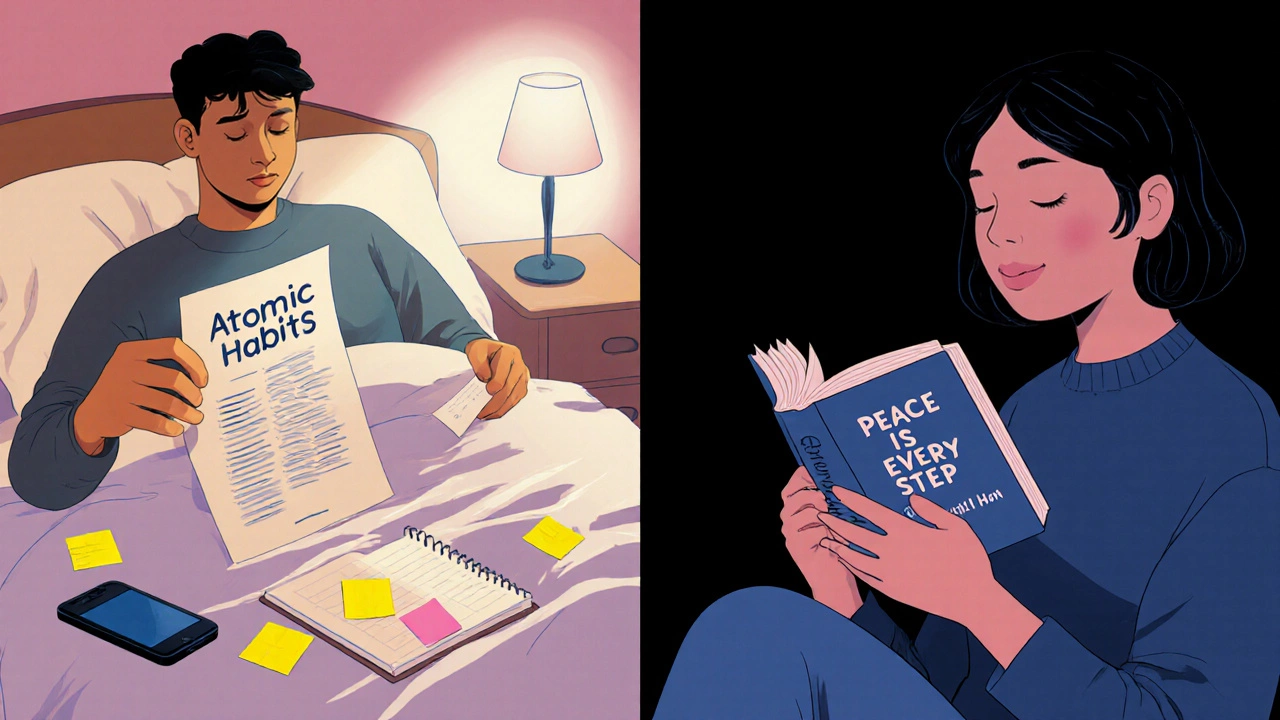
When Self-Help Books Keep You Awake
Now consider books like Atomic Habits. It’s brilliant. It’s packed with practical steps. But reading it at night can backfire.
Imagine this: you read a chapter about building a morning routine. Suddenly, you’re thinking: “I need to wake up at 5 a.m. I need to track my habits. I need to buy a journal. I need to delete my social media apps.” Your heart rate ticks up. Your mind races. You’re not relaxing-you’re planning.
Same with Think and Grow Rich or The 5 AM Club. These books are full of energy, ambition, and urgency. They’re designed to motivate you to act. And motivation doesn’t help you sleep. It hijacks it.
What Kind of Self-Help Book Should You Read at Night?
Not all self-help is bad before bed. It’s about the tone, not the topic.
Ask yourself these questions before you open the book:
- Does this book make me feel inspired-or pressured?
- Does it ask me to change something right now?
- Does it bring up guilt, comparison, or anxiety?
- Does it feel like a conversation-or a lecture?
If the answers lean toward pressure, guilt, or action, put it down. Save it for the morning.
Look for books with:
- Soft, slow language
- Reflection prompts, not action plans
- Themes of acceptance, stillness, or gratitude
- No deadlines, no goals, no metrics
Examples: The Book of Awakening by Mark Nepo, Peace Is Every Step by Thich Nhat Hanh, or even The Midnight Library by Matt Haig (a novel with deep self-help themes).
The Real Benefit of Nighttime Reading
The real win isn’t learning something new before bed. It’s giving your brain a break from screens and noise. That’s why even reading a physical book-any book-helps more than scrolling TikTok or checking emails.
But if you want sleep, not self-improvement, choose the right book. A book that doesn’t demand anything from you is the best kind of bedtime companion.
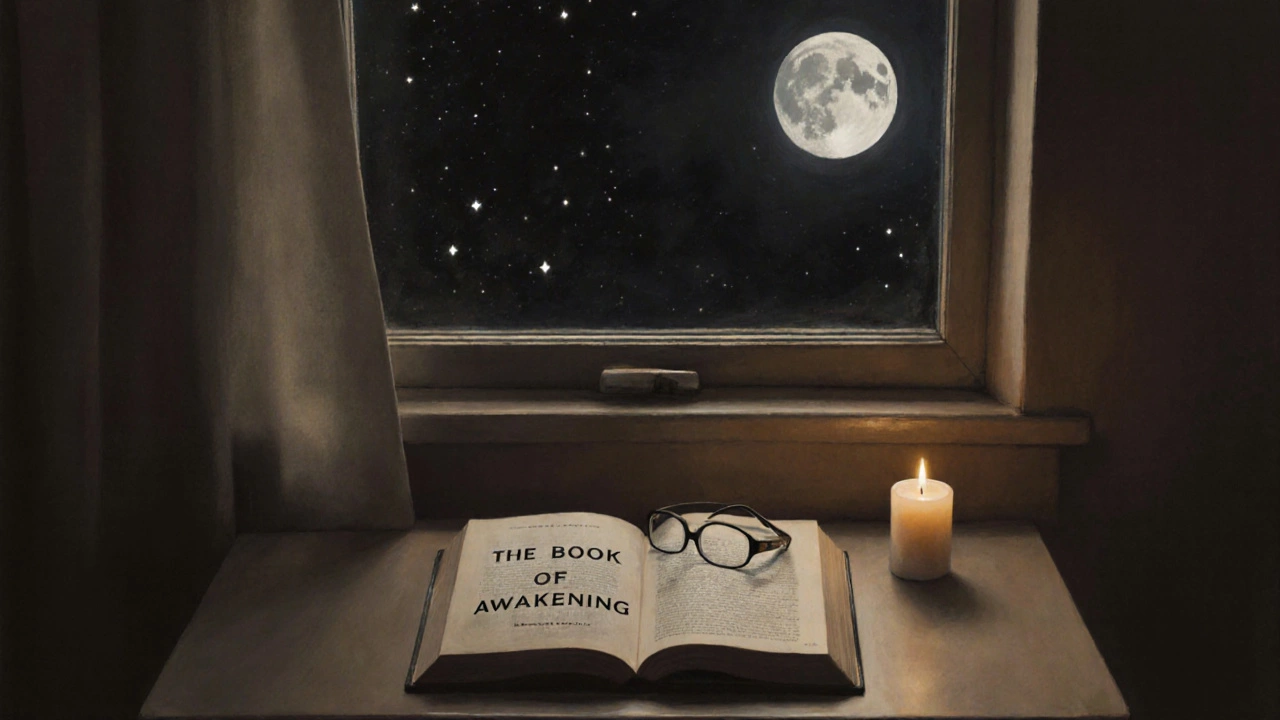
Try This Simple Routine
If you’re serious about using self-help books to improve sleep, try this:
- Set a 15-minute limit. No more. Use a timer.
- Read only one short chapter-or even one page.
- Don’t take notes. Don’t highlight. Just read.
- After reading, close the book and sit quietly for 2 minutes. Breathe. Let your thoughts drift.
- Then turn off the light.
This turns reading into a ritual, not a task. It signals to your brain: “This is the end of the day.”
What If You Can’t Sleep Even After Reading?
Some people still struggle. That’s normal. If you’ve tried the right books and the right routine but your mind still races, try this: switch to audiobooks.
Listening to a calm, slow-paced narration-like The Gifts of Imperfection by Brené Brown read in a soft voice-can be even more soothing than reading. Your eyes are closed. Your hands are still. Your brain doesn’t have to process words visually. It just listens.
Or, if you’re really stuck, skip the book entirely. Try a 5-minute guided meditation or just focus on your breath for 90 seconds. Sometimes, the best self-help is doing nothing at all.
Final Thought: Be Kind to Yourself
Self-help books are tools. They’re not obligations. You don’t have to read them every night. You don’t have to fix yourself before you sleep.
Some nights, your brain needs rest. Not improvement. Not progress. Just quiet.
That’s okay.
And if you find yourself reaching for a self-help book because you feel guilty for not being “better”-that’s the book you really need to put down.
